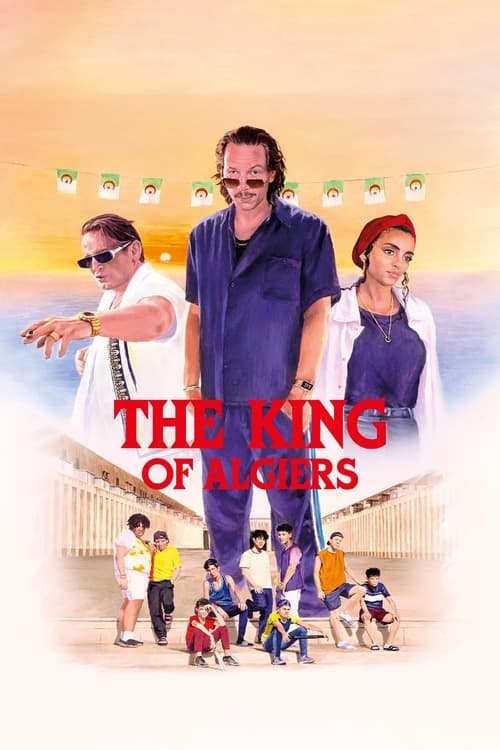
 Disclaimer - This is a news site. All the information listed here is to be found on the web elsewhere. We do not host, upload or link to any video, films, media file, live streams etc.
Kodiapps is not responsible for the accuracy, compliance, copyright, legality, decency, or any other aspect of the content streamed to/from your device.
We are not connected to or in any other way affiliated with Kodi, Team Kodi, or the XBMC Foundation.
We provide no support for third party add-ons installed on your devices, as they do not belong to us.
It is your responsibility to ensure that you comply with all your regional legalities and personal access rights regarding any streams to be found on the web. If in doubt, do not use.
Disclaimer - This is a news site. All the information listed here is to be found on the web elsewhere. We do not host, upload or link to any video, films, media file, live streams etc.
Kodiapps is not responsible for the accuracy, compliance, copyright, legality, decency, or any other aspect of the content streamed to/from your device.
We are not connected to or in any other way affiliated with Kodi, Team Kodi, or the XBMC Foundation.
We provide no support for third party add-ons installed on your devices, as they do not belong to us.
It is your responsibility to ensure that you comply with all your regional legalities and personal access rights regarding any streams to be found on the web. If in doubt, do not use.
 Kodiapps app v7.0 - Available for Android.
You can now add latest scene releases to your collection with Add to Trakt. More features and updates coming to this app real soon.
Kodiapps app v7.0 - Available for Android.
You can now add latest scene releases to your collection with Add to Trakt. More features and updates coming to this app real soon.


1516, Legend has it that the king of Algiers had a wife named Zaphira. When the pirate Aroudj Barbarossa arrives to liberate the city from the Spaniards, he is determined to conquer Zaphira as well as the kingdom itself. But is Zaphira willing to let him, or is she plotting for herself?

In 1895, young journalist Albertine Auclair arrives in the Kabylie during a family visit. The beauty of the region seduces her but she soon learns of the struggles of the native Algerians. She hears in particular about Arezki El Bachir, who was recently sentenced to death by the colonial justice system, and decides to find out more about this extraordinary man.

An experimental essay film about terrorism, media, violence and globalisation. Three infotainment news broadcasts - a rollercoaster, a hijacking, and an influencer - are soundtracked by pulsating experimental electronics that push the psychic residue of a post war-on-terror world out of the unconscious and onto the screen. Capitalism, imperialism, desire; all three are implicated in a nihilism that has seeped from the news into the social psyche.

In the streets of the Casbah of Algiers, an FLN fighter pursued by the colonial police hands over confidential documents to Mourad, an Algerian child shouting newspapers who must at all costs pass them on to the resistance. But the police are on their trail and will do anything to get them back.

“La Zerda and the songs of oblivion” (1982) is one of only two films made by the Algerian novelist Assia Djebar, with “La Nouba des femmes du mont Chenoua” (1977). Powerful poetic essay based on archives, in which Assia Djebar – in collaboration with the poet Malek Alloula and the composer Ahmed Essyad – deconstructs the French colonial propaganda of the Pathé-Gaumont newsreels from 1912 to 1942, to reveal the signs of revolt among the subjugated North African population. Through the reassembly of these propaganda images, Djebar recovers the history of the Zerda ceremonies, suggesting that the power and mysticism of this tradition were obliterated and erased by the predatory voyeurism of the colonial gaze. This very gaze is thus subverted and a hidden tradition of resistance and struggle is revealed, against any exoticizing and orientalist temptation.

Two deaf and dumb children. She is the daughter of an American Oil engineer. He is the son of an Algerian farmer. They meet and manage to communicate, transcending all the cultural barriers that separate them.

Halim, a young man with intellectual disability, who's living with his single mother that struggles to take care of him

Long quest for a director specializing in commissioned films, who after a depression rediscovers his loved ones, his Casbah district, himself. Taken in hand, for a while, by his Islamist neighbor, it is above all the meeting with an old projectionist giving him a censored history of cinema and Algeria, which helps him to change, and to accept his own fantasies, embodied by Marilyn Monroe and the Andalusian.

Tracing the struggle of the Algerian Front de Liberation Nationale to gain freedom from French colonial rule as seen through the eyes of Ali from his start as a petty thief to his rise to prominence in the organisation and capture by the French in 1957. The film traces the rebels' struggle and the increasingly extreme measures taken by the French government to quell the revolt.